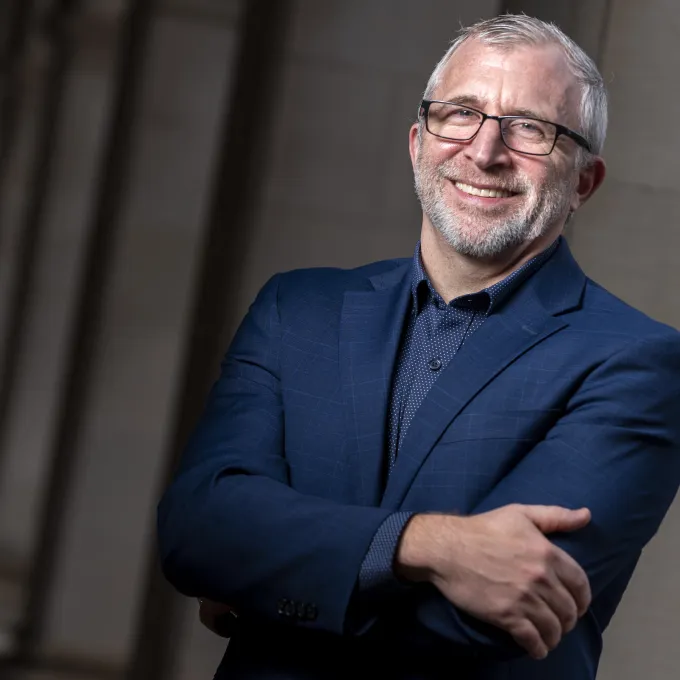Professor Decker has published five books on commercial popular music in the United States from the 1920s to the present. He teaches courses on twentieth-century American popular music, film music, and eighteenth-century European art music.
Todd Decker has published five books on commercial popular music in the United States from the 1920s to the present (Broadway, Hollywood film and television, the recorded music industry, jazz before 1970).
- Astaire by Numbers: Time & the Straight White Male Dancer (Oxford University Press, 2022) reconsiders an iconic Hollywood star through digital humanities methods that account for every second of Fred Astaire’s film dancing.
- Hymns for the Fallen: Combat Movie Music and Sound after Vietnam (University of California Press, 2017), recognized by CHOICE as a 2017 Outstanding Academic Title, examines how music and sound have been deployed in war films made from 1978 to the present centering on the experience of American soldiers on foreign battlefields.
- Who Should Sing “Ol’ Man River”?: The Lives of an American Song (Oxford University Press, 2015) traces the performance history of this very well-known song across eight decades and a wide array of genres—jazz to rock, opera to gospel, doo wop to reggae—with an ear to how the history of race relations in the US has played out in the realm of popular music.
- Show Boat: Performing Race in an American Musical (Oxford University Press, 2013) was recognized as an Honorable Mention for the Woody Guthrie Award for Outstanding Book on Popular Music by the International Association for the Study of Popular Music–US. The book uses extensive archival research to consider how performers—both black and white—shaped this landmark work in its original 1927 Broadway version and in subsequent versions produced in New York, London, and Hollywood.
- Music Makes Me: Fred Astaire and Jazz (University of California Press, 2011) received the Best First Book Award from the Society for Cinema and Media Studies. Music Makes Me locates Fred Astaire’s film and television career in the histories of popular song and jazz and explores Astaire’s dances accompanied by African American musicians in the segregated world of the film musical.
Decker’s current projects include a history of the Broadway musical from 1900 to the present through the lens of racial casting practices, a short book on the film The Gang’s All Here (1943), and a book-length consideration of music and masculinity in the movies of Martin Scorsese.
Decker served as the editor of American Music, the oldest scholarly journal devoted to the subject, from 2020 to 2022.
Professor Decker has given numerous scholarly presentations nationally and internationally, including at the Library of Congress, the Victoria and Albert Museum, the University of Texas at Austin, the College of William and Mary, and Northwestern University. He is an international partner with the Labex Arts-H2H project Musical MC2, based in Paris.
Decker’s articles, book chapters, and blog posts consider race in Hollywood and Broadway musicals, music in the films Dunkirk and La La Land, archival research on the Broadway musical, the closeting of gay characters and films in the 1990s, Martin Scorsese’s use of popular music in the film Casino, Oscar Hammerstein II’s humanitarian ideals in The King and I, and disco in the film The Martian. He was featured in the 2019 BBC radio documentary “It Jus’ Keeps Rolling: The Story of Ol’ Man River.”
Professor Decker received his Ph.D. in historical musicology at the University of Michigan in 2007 and was selected for an Alvin H. Johnson AMS 50 Fellowship by the American Musicological Society in 2006-07. He joined the faculty of Washington University in fall 2007—after a one-year visiting position at UCLA—and teaches courses on twentieth-century American popular music, film music, and eighteenth-century European art music.
Outside his work on American music, Prof. Decker has published articles on eighteenth-century keyboard composer Domenico Scarlatti and holds a Master of Music in harpsichord performance from the San Francisco Conservatory of Music. He has many years of experience performing on harpsichord, piano, and organ, as well as conducting, directing, choreographing, and performing musical theatre.
